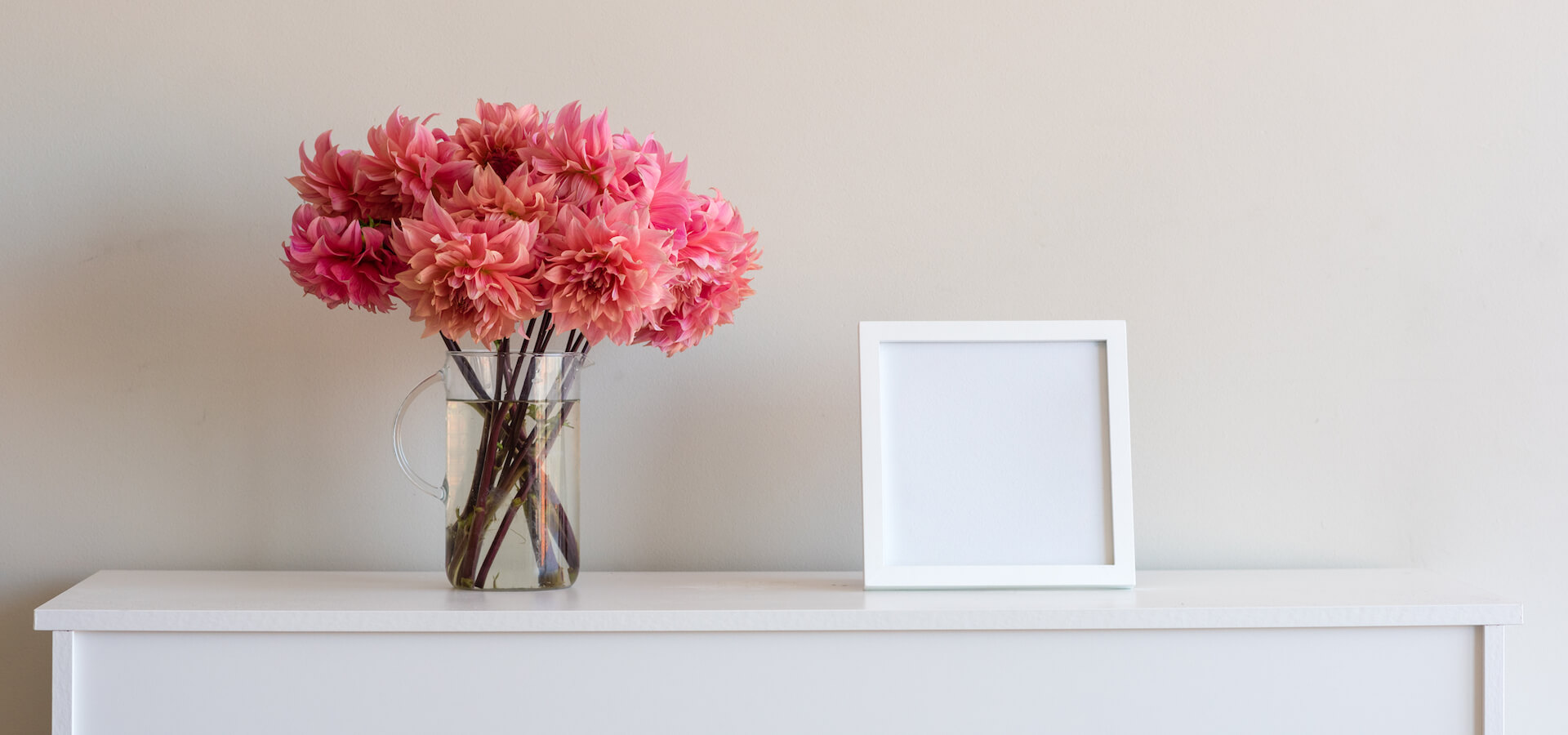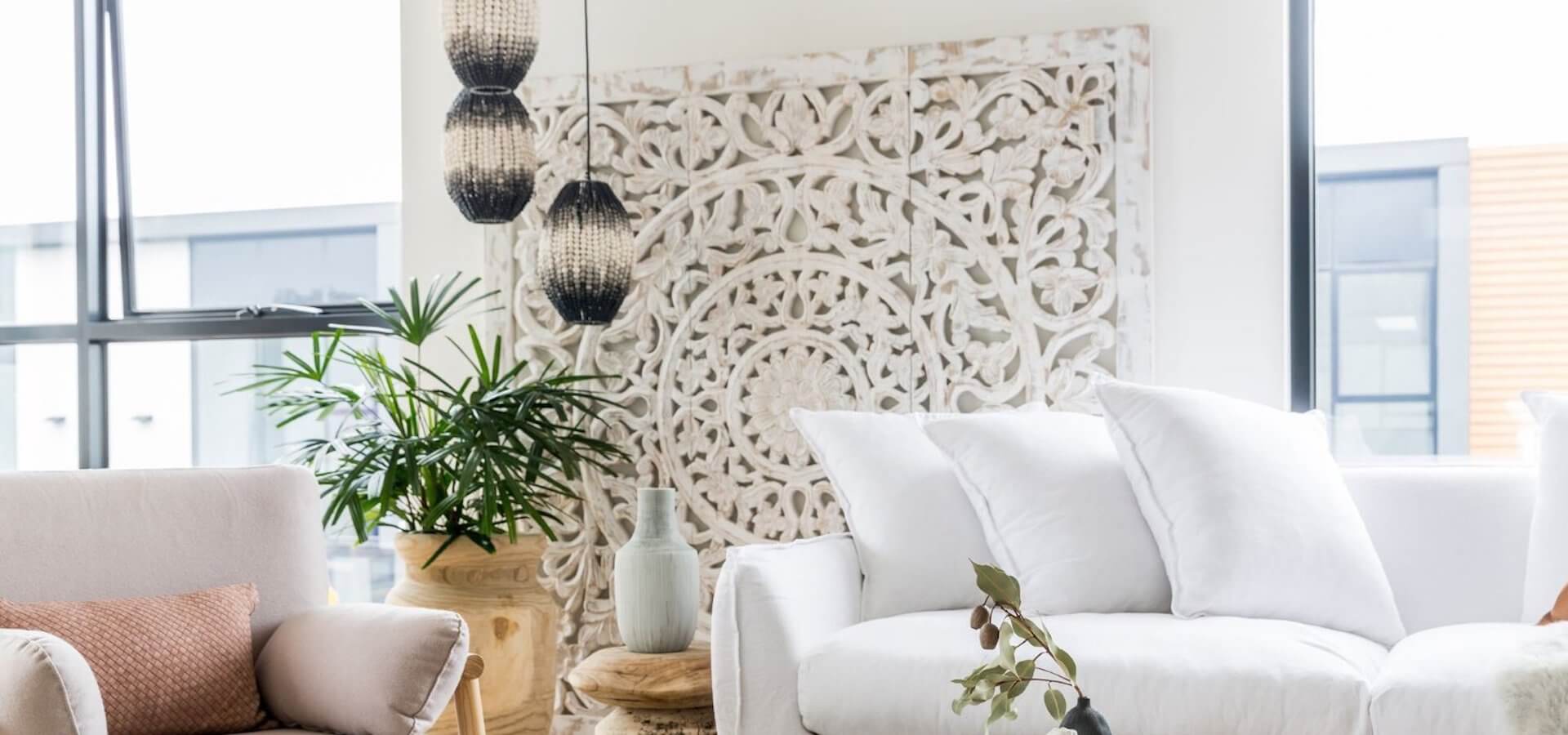How to choose an ethical and sustainable rug for your home

When it comes to considering how you can make more ethical and sustainable choices for your home, a good place to start is under your feet.
Floor rugs are a staple for homeowners wanting to add depth, warmth and comfort to their interiors. Being an investment piece, choosing the right rug is essential, which is why you may want to research how it has been sourced and made. Purchasing ethically and sustainably made ensures that you will have a high-quality rug that is made to last and supports artisans around the globe.

Topics in this article:
How to choose an ethical and sustainable rug for your home
What are the common problems found in today’s rug industry?
It’s no secret that the rug manufacturing industry is complex and not known for its ‘ethical’ practices. With questions about the safety and fairness of workers, there have been a number of reports from bodies such as UNICEF that have identified issues such as forced labour, child labour, access to education and medical care. Rug weaving has been a part of community tradition in carpet weaving areas of Northern India, Pakistan and Nepal for centuries. Being one of the biggest employment sectors in these countries, making sure that workers are treated fairly can make a difference in many lives.
There has also been a rise of ‘fast fashion’ modern rugs that have been made from chemically treated synthetic materials that can be harmful to you and the environment. Rugs in this category are cheap and not made to last therefore are not a sustainable choice.
How can I make sure I’m purchasing an ethically made rug?
You can make a difference simply by checking before you make a purchase. There are many industry partners such as manufacturers, importers and retailers who are partnering with non-profit organisations or funding their own projects aimed at improving the lives of carpet weaving families.
When looking to buy fairtrade rugs online, look for the stamp of organisations like Care & Fair or GoodWeave. These non-profit organisations are both globally recognised for their work that creates better conditions in the carpet weaving industry – especially around illegal child labour. By buying a rug endorsed by one of these third parties you know that part of the purchase price is going back into the community to build better lives.
Which rug materials are the most sustainable?
Flatweave rugs made from natural fibres are usually the best choice. Not only are they more sustainable than synthetic materials, but natural fibre rugs also have a wide range of practical benefits including durability against dirt and natural insulation, keeping energy consumption down.

Here is a quick guide to four of the most popular eco-friendly rug material options:
Wool – Comfortable, durable and beautifully soft, artisan-made natural wool rugs will last a lifetime. This material comes from sheep and goats, therefore, is naturally stain resistant. When shopping, be mindful that the description specifies that the rug is not made from synthetic wool.
Pros:
• Very soft underfoot
• Naturally stain-resistant and water repellent
• No smell
• Long life span
Cons:
• Can be more expensive than other natural fibre rugs
• Not good for damp places (absorbs humidity)
• Prone to shedding when new
Child/pet-friendly? Yes
Durability rating: 9/10 – great for high traffic areas in the home
Cotton – Sourced from the plant, cotton is durable and naturally hypoallergenic. It is often more affordable than wool, so it is a great option if you want to be environmentally friendly but are on a budget.
Pros:
• Affordable
• Easy to clean
• Provides natural insulation
• Naturally hypoallergenic
Cons:
• Not as durable as other natural fibres
• Not naturally stain resistant
• Tends to fade quickly
Child/pet-friendly? Although affordable, cotton rugs do not withstand wear and tear well, therefore, have a short lifespan (leading to more textile waste)
Durability rating: 6/10 – best for use in casual spaces
Jute – Made from the stalk of a tropical grass plant, this biodegradable fibre is often considered the most eco-friendly material for rugs. Durable and easy to maintain, it is great for longevity. Its naturally golden colour is also perfect for completing the look for earthy and coastal style homes.
Pros:
• Very tough and durable
• Typically free from chemical processing – a great eco-friendly option!
• Natural jute colour doesn’t fade in sunlight
Cons:
• Coarse – not as comfortable underfoot as the other natural fibres
• Absorbs water easily so can show watermarks over time
Child/pet-friendly? Rough underfoot so not comfortable for children and pets to play/sit on. It will also show possible mud/watermarks from footprints and spills more clearly over time.
Durability rating (out of 10): 7/10 – good for high traffic areas

Bamboo silk – Bamboo grows quickly with very minimal resources so it is a highly renewable rug material. Beautifully soft and strong, this material does not compromise on comfort or practicality. Often, bamboo will be weaved with another material such as wool for more durability.
Pros:
• Beautifully soft underfoot
• Very luxurious look
• Light-weight
Cons:
• Very delicate – liquids show easily and are difficult to remove
• Can’t spot clean
• Susceptible to pile-damage/indentations
Child/pet-friendly? No
Durability rating (out of 10): 4/10 – best for use in low traffic areas
How can I clean my rug in an environmentally friendly way?
So, you’ve purchased your new rug and now you would like to care for it in the most environmentally way possible!
Fortunately, jute, wool and cotton natural fibre rugs have natural water and stain repellent properties so it is unlikely that you will need to purchase cleaning products that contain harsh chemicals. We recommend treating spots and spills on these natural fibre rugs immediately with warm water and a paper towel using a dabbing motion. Be mindful not to scrub the rug as this may cause permanent pile damage.
If the stain persists (or you have chosen a Bamboo Silk natural fibre rug), we recommend getting it professionally cleaned as soon as possible to avoid setting the stains.

For longevity of your natural fibre rug, we recommend the following:
• Check that your rug has a cotton backing and braided edge.
• Vacuum regularly with a low suction power setting.
• Rotate your rug to ensure even wear (this includes changing furniture placement).
Whether the rug you’re looking to purchase is ethically and sustainably sourced is often difficult to find out, so when in doubt, simply ask the brand or store you’re considering purchasing a rug from. A great place to start looking is Weave Home with our range of natural fibre flatweave rugs that have been created in partnership with Care & Fair.
We'd like to hear from you!
3 comments
The best thing to do to control shedding is to lightly vacuum your rug every couple of days. To avoid shedding altogether it’s best to buy hand-woven rugs. Hope that helps!
I hate it when my wool rugs shed. Is there any specific treatment and care to prevent wool rugs from shedding?
Is there a way to clean rugs from dust without washing it besides using a vacuum cleaner?



